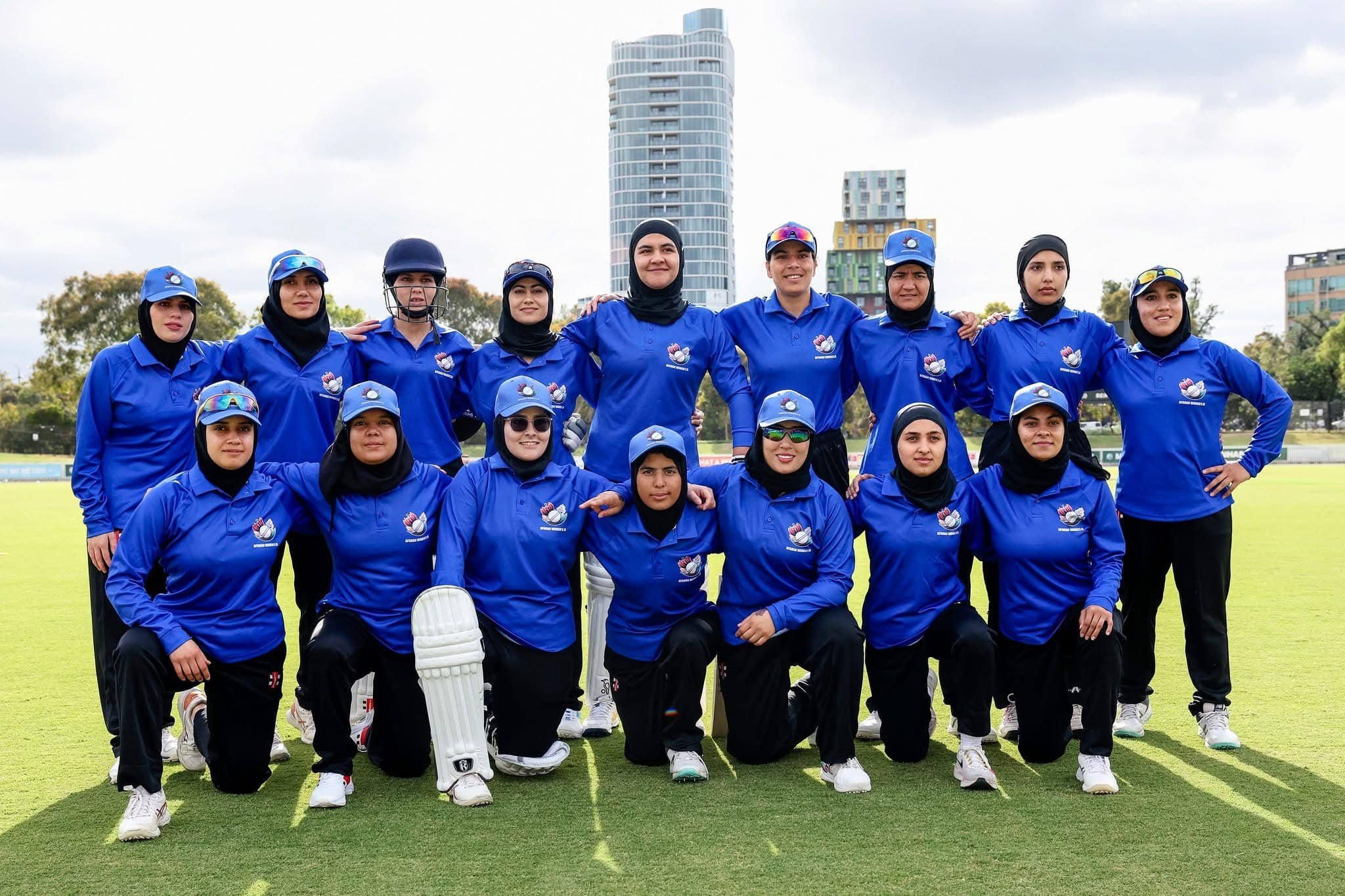
Imagine living in fear of being killed if you played the sport you loved — and imagine risking your entire life to flee your country to do just that.
The Afghanistan women’s cricketers left behind their homeland knowing they were left with no choice if they wanted to just survive, let alone play the sport they love, when the Taliban took over in 2021.

Earlier that year, 19 players had been contracted by the Afghanistan Cricket Board to play their first international game.
Those dreams were scuppered.
Searching for a better life, and desperate to keep playing sport, the cricketers found international allies, including former Australian player turned commentator Mel Jones.
Jones, alongside other key figures, worked tirelessly to help the group flee to Australia, whose men’s side have refused to tour Afghanistan due to that country’s oppression of women.
Burning their cricket bats and gear to remain undetected — others buried their gear deep underground — the Afghan women remarkably escaped, after jumping through Taliban checkpoints and through other countries. They are based around the world.
Some arrived in their new homes with just one bag of clothing. Others arrived with no shoes.
One of the largest cohorts landed in Australia, becoming permanent residents across Canberra and Melbourne and the cricketing community has done everything they can to support the internationals.
Their remarkable fight has not gone in vain and they banded together to play their first invitational against a team representing Cricket Without Borders, a charity designed to encourage women and girls in the sport, in Melbourne last week.
It was a historic occasion for the Afghanistan team, but it was about so much more than just the game.
They aim to be a mouthpiece; to stand up in the face of sexism, segregation and for what is right for women across the world.
They are a beacon of hope for women in a country where the cricketers say the lights went out the day the Taliban took over.
Captain Nahida Sapan said they sacrificed a lot to be at the game and they were not just building a team, but a movement for change for Afghan women in education and sport.
“This hasn’t been only a game for all of us,’’ team member Firooza Amiri echoed.
“It’s been to represent and be [a] voice of millions of women’s fight in Afghanistan.’’
They played in custom-made blue uniforms instead of their country’s colours.
They cannot truly represent Afghanistan because they are not recognised by the International Cricket Council — from which the group say they have had no support — and are unable to represent another country.
But that will not stop them.
They have received further backing from the Marylebone Cricket Club, in England, who created a new Global Refugee Cricket Fund aiming to help displaced communities.
The Afghanistan cricketers will be the first recipients of support from the fund.
No woman should ever have to go through the pain and suffering of being silenced, and while there are some country’s regimes that believe otherwise, let the Afghanistan cricketers be a reminder of why we should always fight for our rights.
It is a beautiful reminder yet again that sport can be so much more than just a game











